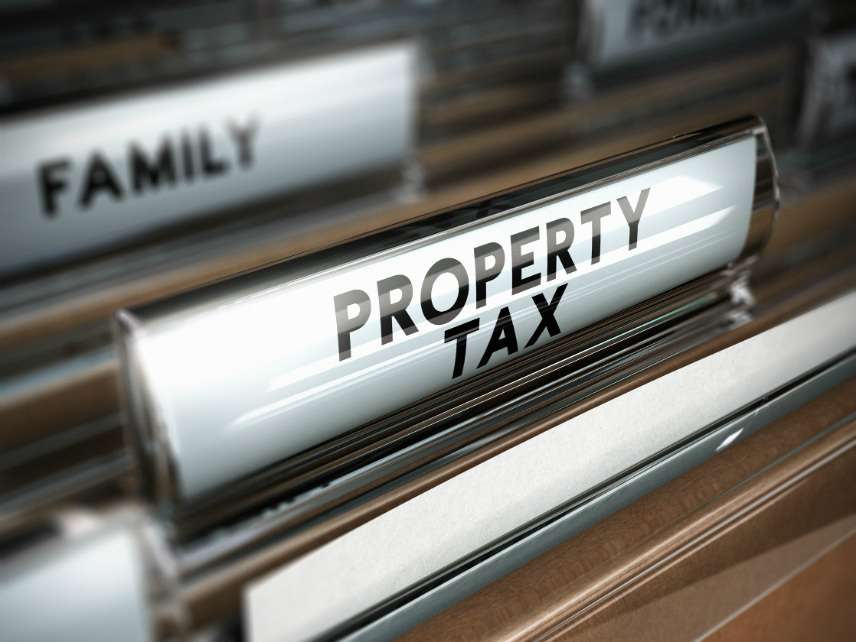Maryland City Raises Property Tax on Businesses by 800 Percent, in Bid to Attract More Businesses
Now they're being sued for it.

Here's a good rule of thumb: If you want more of something, don't tax the dickens out of it. This principle appears to have eluded the town of Seat Pleasant, Maryland, which jacked up five businesses' property taxes by 800 percent as part of a scheme to attract more businesses to the community.
Now two of the targeted companies are suing, claiming the small suburb—located just outside D.C—violated everything from their own charter to the U.S. Constitution when it imposed the tax.
"It is backward economic thinking. It's borderline racketeering," says Steven Franco, who owns and operates the Discount Mart and is one of the plaintiffs in the suit.
Franco saw his property taxes shoot up from less than $6,000 to over $55,000 in less than a year. This, he says, has had an "extremely adverse impact" on his business. "People's schedules have been cut. Profits have been almost depleted….One guy had to get laid off."
Other plaintiffs in the lawsuit include married couple Si Quang Chen and Chang Lin Chen, who own a Chinese restaurant next to Franco's store. Their property tax bill went from $3,482 to $31,180.
In May 2017, the Seat Pleasant council passed a yearly budget that included a special assessment to fund a "Special Revitalization District for Businesses." The tax was supposed to bring in about $252,864 a year, which would be used to spur economic development and develop a "stronger financial portfolio" for the city.
According to Seat Pleasant's charter, a special assessment like the one levied on Franco and the Chens must be spent on specific improvements to the targeted taxpayers' properties—for example, by adding a sidewalk or sewer main. The city must also hold a public hearing on the assessment and give affected property owners a chance to appeal.
But the budget document makes it clear that the assessment is intended to benefit the entire town. Menawhile, the lawsuit alleges that Franco and the Chens received neither a public hearing nor a chance to appeal. The suit also claims that the tax violates the Fifth Amendment to the U.S. Constitution's prohibition on taking property without due process of law.
Mayor Eugene Grant, named as a defendant in the lawsuit, tells the local NBC affiliate that "all of these dollars are necessary for us to provide efficient and effective services for the residents of Seat Pleasant."
Grant is a controversial politician, who held court for several months in a tent outside the Seat Pleasant City Hall after the city council voted to bar him from the building because of alleged hostile behavior toward city staff. In 2016, he engineered a takeover of the city council with a slate of candidates favorable to himself, in an election that sparked accusations of voter fraud.
Grant has expressed a desire to redevelop the area occupied by the businesses that were hit by the assessment. Franco thinks the tax is intended to force him to sell his property to the city, which already owns sizable nearby lots. Grant had previously floated the idea of using eminent domain to seize Franco's property, according both to the lawsuit and to texts supposedly sent between Grant and Franco. (The texts have been posted to the website xposesp.com.)
Franco, whose store sells everything from milk to computers to school uniforms, says that Seat Pleasant is already a difficult place to do business, setting aside the special assessment.
Most Maryland personal property taxes—a tax paid on furniture, tools, and other movable property used in a business—are levied at less than 2 percent, with many towns and counties charging less than 1 percent or having no personal property tax period. Seat Pleasant's personal property tax, by contrast, is 15 percent, over six times the Maryland jurisdiction with the next-highest rate.
Franco says that such high tax rates, plus the treatment he and other business owners have experienced, will only discourage the economic development that local officials say they want to create.
"Anyone who is considering coming in to do business is going to have serious second thought," Franco says. "Seat Pleasant could be a great place, but their policies are backward economic thinking."
A pre-trial hearing is scheduled for April 2.
Rent Free is a weekly newsletter from Christian Britschgi on urbanism and the fight for less regulation, more housing, more property rights, and more freedom in America's cities.


Show Comments (73)